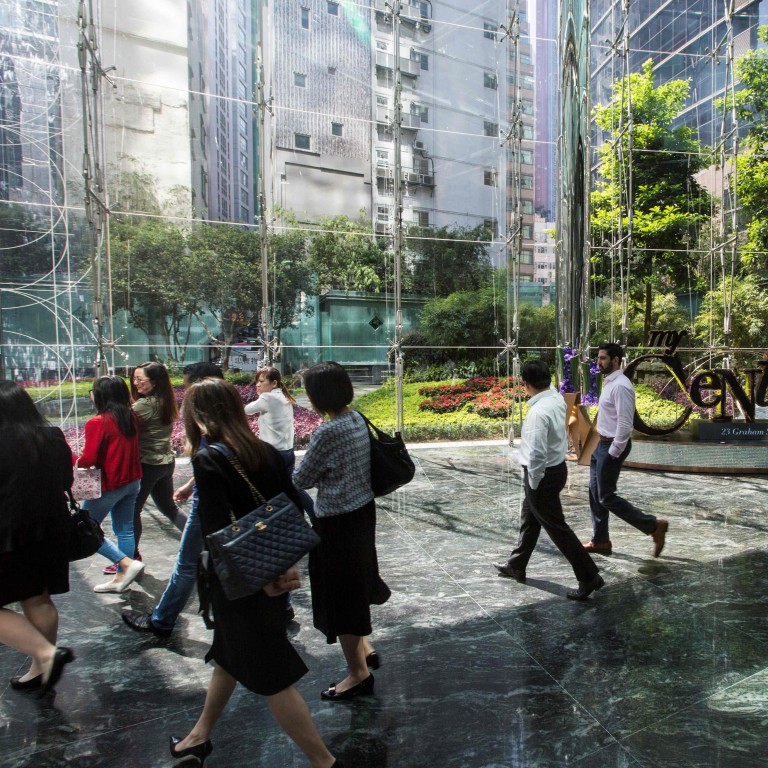
Hongkongers are financially unprepared for retirement and death, exposing the risks of living in the world’s most expensive city
- Married couples with children face shortfall of HK$4.65 million between their bequests in event of sudden death, and their present income, according to survey
- The December survey canvassed 1,224 affluent residents, defined as those with between HK$300,000 and HK$1 million in assets
Hong Kong’s residents are financially unprepared for sudden deaths, with shortfalls between their intended bequests and income that leave their loved ones vulnerable to the challenges of living in the world’s most expensive city, according to a survey.
For singles who are still working, the shortfall between their income and what they bequeath to their parents can be as high as HK$2 million, while the gap is narrower for retirees at HK$1.05 million, according to Citibank’s December survey of 1,224 affluent residents, defined as those with between HK$300,000 and HK$1 million in investment assets.
For married couples with children, the shortfall is the widest at HK$4.65 million (US$592,700) while the gap for childless couples narrows to HK$2.11 million on average, the survey found.
“Those families with children need to prepare for their education, so they would need to prepare more” financially in the case of unexpected deaths, said Gordon Tsui Luen-on, managing director of Hantec Pacific in Hong Kong.
The poll underscores how Hong Kong’s residents struggle to make ends meet, even among the affluent segment of society that makes up Citibank’s survey sample.
A record 1.37 million people, or more than 20 per cent of the city’s population, live below the poverty line, according to the local government’s 2017 Poverty Situation report released in November.
Adjusted for government handouts and support, that number drops to 1.01 million, or 14.7 per cent of the city’s population.
A single mother who only wanted to be identified by her surname, Chan, said she owns a flat and has about HK$1.5 million in cash, which she thinks should be enough for her 18-year old son.
“I do not worry about sudden death but my savings should be able to support my son to finish his university degree,” she said. “What I worry about is if I have cancer or some other serious illness which would need huge medical expense that exceeds my medical insurance cover.
“If that happens, my son may need to take care of me which would affect his ability to study or to work. I do think I may not have sufficient cover on my medical insurance plan.”
Kenrick Chung, chief commercial officer of Charter Management Group, said Hongkongers can voluntarily increase their contributions to the mandatory provident fund (MPF) or invest in annuity to prepare for retirement need.
“Life insurance products can help hedge the risks of sudden death to provide monetary protection to the family and young children,” Chung said. “People should also beware of the risks of having to bear high medical cost for some critical illness or serious accident. The medical cost is high and that may add to the family a big burden.”
Life expectancy for Hong Kong’s women is 87.7 years, the longest in the world. Men are twice as likely to die than women in the age group of between 30 and 54 years, according to the local government’s census data.
More than half of the survey respondents say they are worried about maintaining their living standards after retirement, or adequately providing for their loved ones in the event of death.
The Mandatory Provident Fund (MPF), the city’s compulsory pension scheme, with HK$380,000 in average savings, is far from adequate from providing the financial safety net for its 2.8 million members.
The staggering numbers underpin the effort by the city’s government to bring prices down in the city’s overheating residential property market and ease the biggest single financial burden for most residents.
Until rising interest rates combined with a government tax forced developers to add property to housing supply, home prices had risen every month for two continuous years, putting Hong Kong home prices at the top of the world.
Hong Kong’s homeowners need to service HK$4 million of mortgage loans on average, according to the local monetary authority’s data.
On top of housing, families must set aside HK$17,300 every month on average for children, according to the survey.
Married couples with children need at least HK$6.63 million to adequately provide for their children and a spouse, in case of a sudden death. This is double the HK$3.29 million needed by childless couples, and more than the retirees’ need of HK$3.5 million, or the HK$3.11 million needed by single, working people.
Citibank’s study also exposes an expectations gap between husbands and wives in their respective bequests, caused by lifestyle differences.
Husbands expect to receive HK$7.38 million from their wives, while women expect to get HK$6.59 million the other way round, the survey showed.
“The difference reflects the cost of living between the two genders,” said Tsui. “Men usually expect higher expenses than women.”

